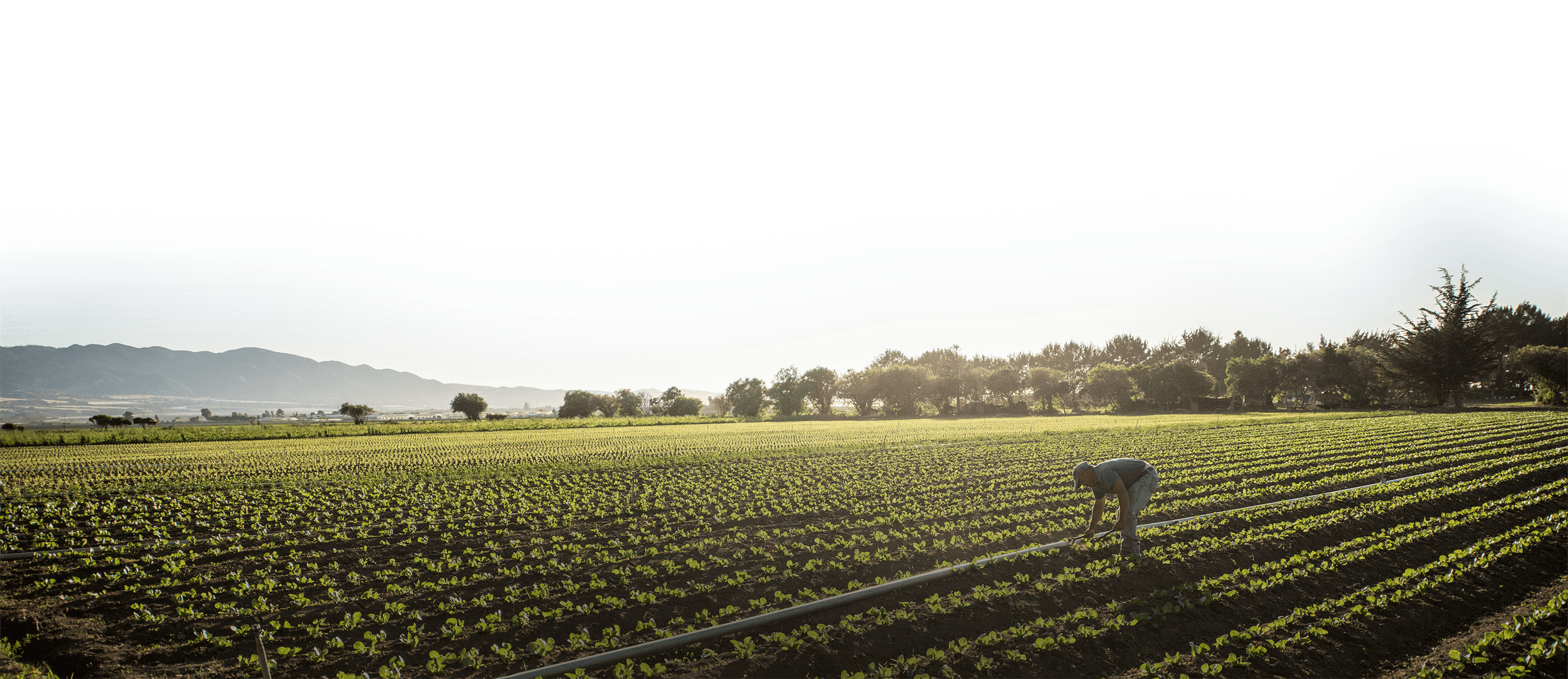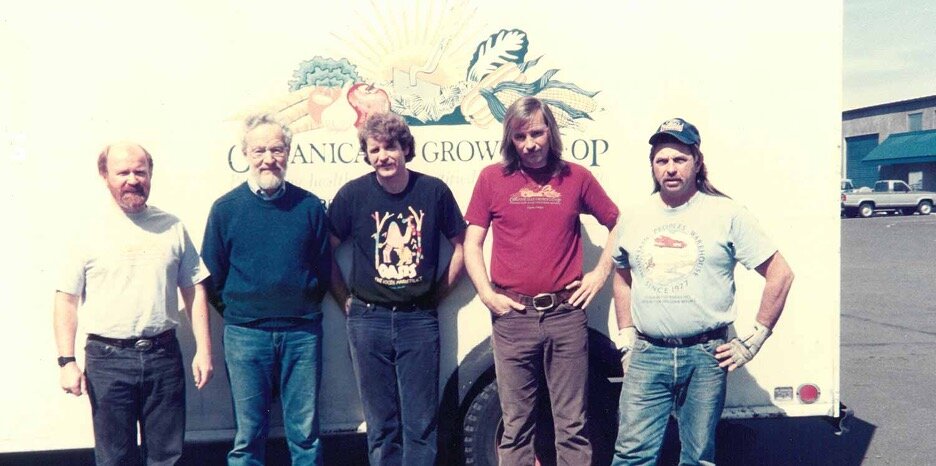History
Growing the Organic Movement since 1978
(L to R) Robert Despain, GM; Robert Rodale, Rodale Institute; Tom Lively, Sr. Account Rep; David Lively, VP Sales and Marketing; Tom Keller, Delivery, 1989
In The Beginning
In the late 1970s, a few gardeners, small-scale farmers, hippies, environmental activists and dreamers living near Eugene, Oregon started getting together to talk about a shared belief: that organic agriculture was a key to nourishing healthy people and sustaining a healthy planet.
By January 1978, these early pioneers had chosen a name — Organically Grown Cooperative. It would become a centralized network for sharing information, educating each other and buying supplies to build a stronger organic marketplace. They set about incorporating as a nonprofit.
By 1980, the desire to restructure the cooperative for business purposes resulted in the hiring of a VISTA worker, Lynn Crosby, who would act as coordinator of activities for the next several years. During this period, growers would re-write the organization’s bylaws to create an agricultural marketing cooperative, purchase a cooler and other equipment, and locate a property on which to build a dock. As the dream of a farmer-owned business became a reality, the growers began the process of “coordinating” their crop production in order to insure that all items were produced in volumes that would meet, but not surpass demand.
The First Employee & Facility
In 1983, the coop opened its first dock in North Eugene. It hired its first employee, Joe Gabriel, to buy, sell, store and deliver produce, as well as ensure collections. The coop had six member farms, and a larger number of “affiliates” mostly located in the upper Willamette Valley and Southern Oregon. Sales the first year amounted to $12,000.
Grand opening of our first facility in Eugene, Oregon, July 1983.
Taken at an OGC Tomato War in the early 90s at Fir Oak Farm.
Continued Growth
Over the next decade, with an expanded facility in Eugene, sales grew an average of 40 percent per year. The company opened a facility in Portland in 1994, Seattle in 2001, and in 2012 a new, 119,000 square-foot-facility in Portland.
Along the way, OGC became an S-class corporation in 1999, and in 2008 an employee stock ownership program (ESOP) took effect. In 2016, the company moved into a larger Seattle facility and opened a dock in Spokane, WA to help serve Montana customers and beyond. Today, the company is owned by the Sustainable Food and Agriculture Perpetual Purpose Trust (SFAPPT).
Timeline
“Founded as a non-profit cooperative
”
“Evolves into grower marketing cooperative
”
“Inaugural Tomato War, our annual company celebration
”
“First Portland facility opens
”
“Kent, Wash. facility opens
”
“Hosts Organic Produce Trade Sustainability Summit
”
“Oregon Tilth 2006 Outstanding Visionary of the Year, for sustainability initiatives
”
“Launches Employee Ownership Program
”
“Co-hosts first Organicology conference
Oregon Department of Environmental Quality Fleet Forward award, for cleaner fuels and fuel saving
”
“Opens new state-of-the-art facility in Gresham
”
“Expands routes in Idaho and Montana
Spokane facility opens
”
“LEED Silver certified dock opens in Seattle area
”
“Transitions ownership to Sustainable Food & Agriculture Perpetual Purpose Trust
”
“Hosts first annual SFAPPT Gathering with a keynote address presented by Oregon Congressman Earl Blumenauer”
“Launched the OGC Mission Fund, awarding over $200,000 in grants to our stakeholder community
”
“Organic retail executive & environmentalist Brenna Davis is named CEO
Signed on to the Pacific Coast Collaborative food waste reduction initiative
Helped launch Washington State’s Coalition for Organic & Regenerative Agriculture
”
“Joined One Step Closer’s CEO Leadership Chapter for triple-bottom line leaders
”



